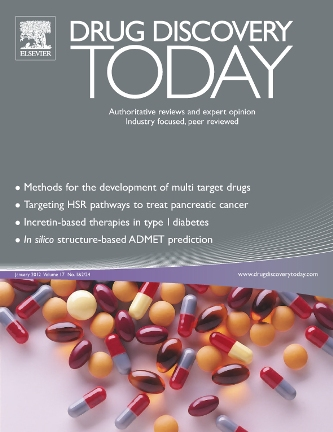Polysaccharides as therapeutic vehicles in pancreatic cancer
IF 6.5
2区 医学
Q1 PHARMACOLOGY & PHARMACY
引用次数: 0
Abstract
Pancreatic cancer (PC) is highly aggressive, with rising incidence and mortality rates. It has significant therapy obstacles due to the limited clinical options, late-stage identification, dense tumor microenvironment (TME), and resistance to therapy. Recent advances might improve treatment consequences in therapy strategies that target important TME components. Moreover, new polymeric drug delivery techniques based on polysaccharides such as polymeric micelles, liposomes, and nanoparticles enhance the solubility of drugs, drug stability, and tumor-specific targeting, which increase the chances of circumventing resistance and improving the efficacy of treatment. Preclinical research has suggested that by modulating the TME and enhancing the efficacy of chemotherapy, polysaccharide-based therapy, such as RP02-1 and DPLL-functionalized amylose, may help treat PC.

多糖作为胰腺癌的治疗载体。
胰腺癌(PC)具有高度侵袭性,发病率和死亡率不断上升。由于临床选择有限、晚期鉴定、肿瘤微环境(TME)致密、治疗耐药等原因,其治疗障碍较大。最近的进展可能会改善针对重要TME成分的治疗策略的治疗效果。此外,基于聚合物胶束、脂质体和纳米颗粒等多糖的新型高分子药物递送技术提高了药物的溶解度、药物稳定性和肿瘤特异性靶向性,从而增加了规避耐药性和提高治疗效果的机会。临床前研究表明,以多糖为基础的治疗方法,如rp2 -1和dpll功能化直链淀粉,可能通过调节TME和提高化疗疗效来帮助治疗PC。
本文章由计算机程序翻译,如有差异,请以英文原文为准。
求助全文
约1分钟内获得全文
求助全文
来源期刊

Drug Discovery Today
医学-药学
CiteScore
14.80
自引率
2.70%
发文量
293
审稿时长
6 months
期刊介绍:
Drug Discovery Today delivers informed and highly current reviews for the discovery community. The magazine addresses not only the rapid scientific developments in drug discovery associated technologies but also the management, commercial and regulatory issues that increasingly play a part in how R&D is planned, structured and executed.
Features include comment by international experts, news and analysis of important developments, reviews of key scientific and strategic issues, overviews of recent progress in specific therapeutic areas and conference reports.
 求助内容:
求助内容: 应助结果提醒方式:
应助结果提醒方式:


